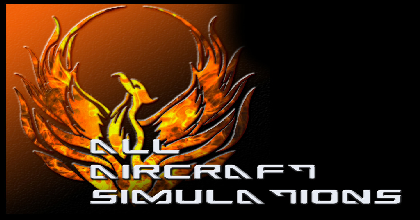23.12.2007, 09:25
IL2 definitely does not have a linear height change as the RGB values increase. I have used Gimp with a 256x256 map (map empty2a).
The following pictures show what I have found.
![[Image: slopes1.jpg]](http://i272.photobucket.com/albums/jj183/Clock_Watcher/slopes1.jpg)
from the front to the back:
Slope 1, 2 = Linear greyscale spread from 0 - 255. with dither and adaptive supersampling
Slope 3, 4 = Linear greyscale spread from 0 - 255. with dither no adaptive supersampling
Slope 5 = Linear greyscale spread from 0 - 255. no dither no adaptive supersampling
Slope 6 + 7= Corrected RGB Greyscale curve to get a linear height change
![[Image: slopes2.jpg]](http://i272.photobucket.com/albums/jj183/Clock_Watcher/slopes2.jpg)
This shows the other end of the slopes, description is the same. Note that the corrected RGB Greyscale has a lip at the far side, this is something still to be sorted on my RGB correction curve.
What these pictures prove is that IL2 has sudden changes in height as the RGB increases. (see my above posts) This makes it difficult to get DEM and SRTM data from real world maps into IL2 if the height is above 600m since the scale starts to change dramatically. I have managed to correct basic SRTM data using my correction curves and Gimp, but at higher altitudes there is a difficulty in getting smooth slopes without steps.
More experimenting required!
The following pictures show what I have found.
![[Image: slopes1.jpg]](http://i272.photobucket.com/albums/jj183/Clock_Watcher/slopes1.jpg)
from the front to the back:
Slope 1, 2 = Linear greyscale spread from 0 - 255. with dither and adaptive supersampling
Slope 3, 4 = Linear greyscale spread from 0 - 255. with dither no adaptive supersampling
Slope 5 = Linear greyscale spread from 0 - 255. no dither no adaptive supersampling
Slope 6 + 7= Corrected RGB Greyscale curve to get a linear height change
![[Image: slopes2.jpg]](http://i272.photobucket.com/albums/jj183/Clock_Watcher/slopes2.jpg)
This shows the other end of the slopes, description is the same. Note that the corrected RGB Greyscale has a lip at the far side, this is something still to be sorted on my RGB correction curve.
What these pictures prove is that IL2 has sudden changes in height as the RGB increases. (see my above posts) This makes it difficult to get DEM and SRTM data from real world maps into IL2 if the height is above 600m since the scale starts to change dramatically. I have managed to correct basic SRTM data using my correction curves and Gimp, but at higher altitudes there is a difficulty in getting smooth slopes without steps.
More experimenting required!

![[Image: NEVISUNCORRECTEDROUGHscreencapture.jpg]](http://i272.photobucket.com/albums/jj183/Clock_Watcher/NEVISUNCORRECTEDROUGHscreencapture.jpg)
![[Image: NEVISCORRECTEDROUGHscreencapture.jpg]](http://i272.photobucket.com/albums/jj183/Clock_Watcher/NEVISCORRECTEDROUGHscreencapture.jpg)
![[Image: UnrevisedSRTMHighlandsV1.jpg]](http://i272.photobucket.com/albums/jj183/Clock_Watcher/UnrevisedSRTMHighlandsV1.jpg)
![[Image: UnrevisedSRTMHighlandsV1screencaptu.jpg]](http://i272.photobucket.com/albums/jj183/Clock_Watcher/UnrevisedSRTMHighlandsV1screencaptu.jpg)
![[Image: RevisedSRTMHighlandsV1.jpg]](http://i272.photobucket.com/albums/jj183/Clock_Watcher/RevisedSRTMHighlandsV1.jpg)
![[Image: RevisedSRTMHighlandsV1screencapture.jpg]](http://i272.photobucket.com/albums/jj183/Clock_Watcher/RevisedSRTMHighlandsV1screencapture.jpg)
![[Image: RevisedSRTMHighlandsV2.jpg]](http://i272.photobucket.com/albums/jj183/Clock_Watcher/RevisedSRTMHighlandsV2.jpg)
![[Image: RevisedSRTMHighlandsV2screencapture.jpg]](http://i272.photobucket.com/albums/jj183/Clock_Watcher/RevisedSRTMHighlandsV2screencapture.jpg)
![[Image: texturetrialv1.jpg]](http://i272.photobucket.com/albums/jj183/Clock_Watcher/texturetrialv1.jpg)
![[Image: texturetrialv2.jpg]](http://i272.photobucket.com/albums/jj183/Clock_Watcher/texturetrialv2.jpg)
![[Image: texturetrialv3.jpg]](http://i272.photobucket.com/albums/jj183/Clock_Watcher/texturetrialv3.jpg)
![[Image: factorycitydesert.jpg]](http://img.photobucket.com/albums/v228/badatflyski/Modding/factorycitydesert.jpg)
